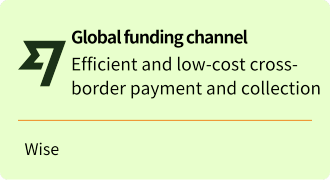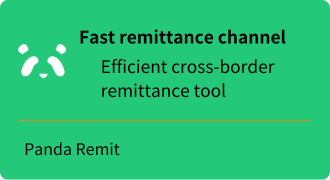2024 US PTP Tax Guide: 10% Withholding for Overseas Investors
[DISCLAIMER] This article is for educational and informational purposes only and does not constitute investment advice. Readers should consult with qualified financial professionals before making any investment decisions.
"Wait, why is my ETF return so much lower?" I frowned as I looked at my trading statement from early 2023. Apparently, a new US tax regulation had quietly come into effect, directly impacting the returns of us overseas investors.
If you're invested in US stocks, especially ETFs, this change might have affected you without you realizing it. Today, let's uncover this new tax rule and see how it's changing the game for our investments.
Ⅰ. What is a PTP and Why Should We Care?
PTP stands for Publicly Traded Partnership, a special business structure. Many ETFs in the energy and natural resources sectors fall into this category. Previously favored for their tax advantages, the situation has now changed.
Ⅱ. The New Tax Rule Explained
Starting January 1, 2023, non-US investors are subject to a 10% withholding tax when selling PTP stocks or ETFs. This means when you sell such investments, your broker will automatically deduct 10% for tax purposes.
Ⅲ. Why This New Regulation?
The US government aims to close tax loopholes and ensure tax fairness between overseas and domestic investors. While it's bad news for us, it's a step towards a more comprehensive tax system.
Ⅳ. How Does This Affect Our Investments?
- Reduced Returns: Our actual gains will be lower.
- Strategy Adjustment: We may need to reconsider holding PTP-type ETFs.
- Tax Planning: More complex tax situations may require professional advice.
Ⅴ. How to Identify PTP Investments?
Not all ETFs are PTPs. Here are some types that are more likely to be PTPs, with common examples:
5.1 Energy Sector ETFs
- Alerian MLP ETF (AMLP)
- Global X MLP ETF (MLPA)
- InfraCap MLP ETF (AMZA)
5.2 Commodity ETFs
- United States Oil Fund (USO)
- United States Natural Gas Fund (UNG)
- iPath Bloomberg Commodity Index Total Return ETN (DJP)
5.3 Some High-Yield ETFs
- Global X SuperDividend ETF (SDIV)
- ETRACS Monthly Pay 2x Leveraged Mortgage REIT ETN (MORL)
5.4 Broad Market Index ETFs
- SPDR S&P 500 ETF Trust (SPY)
- Invesco QQQ Trust (QQQ)
- iShares Russell 2000 ETF (IWM)
5.5 Industry ETFs (non-energy)
- Technology Select Sector SPDR Fund (XLK)
- Health Care Select Sector SPDR Fund (XLV)
- Financial Select Sector SPDR Fund (XLF)
5.6 Bond ETFs
- iShares Core U.S. Aggregate Bond ETF (AGG)
- Vanguard Total Bond Market ETF (BND)
5.7 International Market ETFs
- iShares MSCI EAFE ETF (EFA)
- Vanguard FTSE Emerging Markets ETF (VWO)
Note that ETF structures may change over time, so regularly check the latest information on your holdings.
Ⅵ. Coping Strategies
- Review Your Portfolio: Check if you have PTP products.
- Long-Term Holding: If you plan to hold long-term, the tax impact is relatively small.
- Consider Alternatives: Some similar non-PTP ETFs might be good substitutes.
- Consult Professionals: Tax issues are complex; seeking professional advice is often wise.
Ⅶ. My Personal Experience
As a frequent US ETF investor, this new rule has indeed caused some concerns. However, after in-depth research and adjustments, I found it to be an opportunity to reassess and optimize my portfolio.
Ⅷ. Future Outlook
Tax laws are always changing. As investors, we need to stay vigilant and keep learning. This new rule might just be one of many changes to come.
Ⅸ. Official Resources and Further Reading
For a more comprehensive understanding of PTP withholding tax regulations, here are some official resources:
9.1 IRS website on Publicly Traded Partnerships:
Link: [IRS - Publicly Traded Partnerships](https://www.irs.gov/businesses/partnerships/publicly-traded-partnerships)
9.2 IRS Publication 515, Withholding of Tax on Nonresident Aliens and Foreign Entities:
Link: [Publication 515 (2023), Withholding of Tax on Nonresident Aliens and Foreign Entities](https://www.irs.gov/publications/p515)
These resources provide the most authoritative and up-to-date guidance. I strongly recommend spending some time reading them.
Ⅹ. Conclusion
While the new PTP withholding tax regulation increases our tax burden, it also reminds us to manage our investments more smartly. Understanding rules and adapting to changes are key to successful investing.
Have you encountered similar situations? Or do you have other questions about PTP taxation? Feel free to share your thoughts and experiences in the comments. Let's learn and grow together in this ever-changing investment world!
Remember, there are no eternal rules in investing. Only by continuous learning and adaptation can we stand undefeated in the market. Wishing you all successful investments and bountiful returns!







